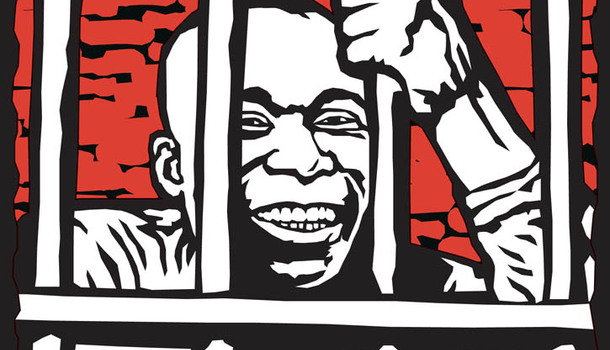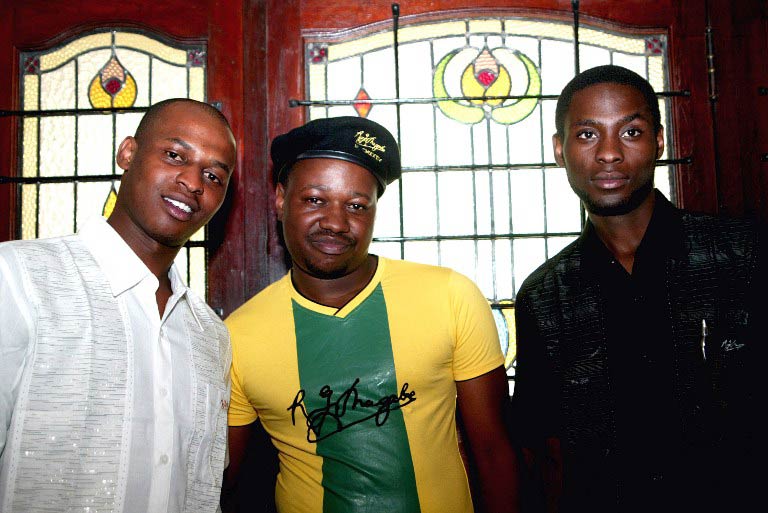Laughter is the best medicine, wisdom says. But not necessarily in all places at all times. In Zimbabwe, laughter might actually be the worst poison, depending on who or what you are laughing at.
A Zimbabwean man living in the east of the country near the belly of the rich diamond fields drinks a few quaffs of his frothy beer, the semi-traditional Chibuku. It is President Robert Mugabe’s birthday. And the 2012 presidential birthday party is in the eastern province’s capital, Mutare.
The man, who is stubborn in the wholesome traditional personality of that region, does not go to the stadium where the party is being held. He has probably attended many in the past and has come to the conclusion that standing in the queue for hours for a small cup of his favourite drink was not to his liking.
So, the man goes to his favourite bar, which is screening the festivities. As if to torture him further, the national broadcaster is airing the lavish birthday party live. The birthday cake is a crocodile-like monster of a sugary thing weighing 88kg — a kilogram for each year. A massive affair with 88 lit candles fluttering in the wind like tiny butterflies blown around by a soothing breeze.
The half-drunk man chats with a stranger sitting next to him: “At the age of 88, where does this old man have the breath to blow out 88 candles? Did he ask for some assistance?” He is referring to Mugabe.
The stranger walks out of the bar with a stern look on his face and shortly returns with two aggressive-looking men at his heels. “Secret police!” the boozer whispers to himself, recognising them by their dark glasses and familiar, wrinkled suits.
The court trial about a pub joke lasts for weeks and weeks, and people all over the country sympathise with the offender. They feel inspired to make more jokes about the president, despite the risks.

In Zimbabwe, joking about the president is a serious crime, and many citizens have lost their freedom for having the courage to laugh at the president. If the South African artist who painted President Jacob Zuma’s privates had been a Zimbabwean, he would probably now be languishing in Chikurubi Prison.
The crime: insulting the president. The punishment: months behind bars in a dingy prison cell, or, if the magistrate feels pity for you, a sentence of hundreds of hours of humiliating community service in a public place in the scorching sun.
But one man seems to have gone too far in the southwestern part of the country. He supports Mugabe’s Zanu-PF party partly because it gives him free T-shirts every now and then. Unfortunately, he did not like the president’s portrait on the front of the T-shirt, so one day he laboriously erased the portrait with white paint. When the secret police saw him wearing the stained shirt, they asked him what he had done to the presidential portrait.
As honest as the people from that part of the country are known to be, he declared: “I removed the face of Mugabe. I like the ruling party, but I don’t like the leader of the party.” He says this with a straight face, not knowing what he’s getting himself into — which turns out to be the mouth of a lion of a magistrate, who sentences him to many hours of community service.
The commandment: thou shalt not deface the picture of the president on a party T-shirt.
In the extreme south of the country, near the border with South Africa, an agitated man speaks to himself in a bar. “I am well educated, but have been unemployed for a long time. It is this Mugabe madness. The man has ruined our country.”
He promptly finds himself in a police cell for the common crime that is now called “insult” by the police. Later when they arrest a journalist, they say he is in a police cell for “the crime of the pen”.
The crime: thou shall not introspect maliciously about the president. The thought police are everywhere, you know, the law seems to say. It is already past George Orwell’s 1984! Life gets worse.
Zimbabweans fight in many different ways for their freedom, including the fight for the right to giggle or laugh. But the law instructs otherwise in the area of what or who not to laugh at. It seems the secret police have a secret manual on guidelines to Zimbabwean laughter.
In another incident, a man was walking home during the day. He came across a herd boy who was taking care of the animals in the open valley near the village. The boy was wearing an over-sized T-shirt with Mugabe’s portrait emblazoned on it. The man was annoyed and called the child to come to him. The boy obeyed, as decent African children are always expected to do.
“Why are you wearing a T-shirt with the face of this old man with a wrinkled face? Take it off!” The man then broke a small branch of a tree, whipped the boy and then let him go.
The following day, the man was in front of a vicious magistrate. The practical joker was sentenced to a year in jail with labour. The offender was not charged for whipping an innocent boy. He was charged for protesting about Mugabe’s portrait.
But then, the area is renowned for its traditional voodoo power; mysterious things originate in the area, including the ability to create lightning. Lawyers arrived to defend the culprit for free so they could make a good legal reputation for themselves. While the case was still in the court, the magistrate collapsed and died in his courtroom.
The new magistrate, probably in utter fear, decided to fine the culprit a few dollars, perhaps just in case his magical powers could be summoned with more potent and fatal force.
And one thing to learn from Zimbabwean public transport is never to mention the name of the president in an argument. Two brothers learnt this the hard way. In their argument about domestic issues during a bus ride in Harare, the elder brother, rather fed up with the younger one’s stubbornness, shouted: “Don’t be as hard-headed as Mugabe, young man.”
Silence during the bus trip
All of a sudden, the bus changed its route and stopped outside a police station. One passenger pointed at the joker and said: “That one, he insulted the president.” Soon, the whole country knew the president was “hard-headed”, and they laughed in subdued ways in isolated places.
The law: be silent on your bus trip if you don’t want to arrive at a prison cell instead of at your house. Although technology is the new miracle in human relations, it can cause much heartache. Case in point: a Zimbabwean woman sent a friend an SMS containing a Photoshopped picture of Mugabe in the nude. Imagine, an 88-year-old man in the nude!
She soon realised the gravity of her offensive joke when her friend appeared with a troop of police officers in tow to arrest her. Poor woman, she is still in the courts, waiting to know when the doors to a dirty prison cell will swallow her. The law: thou shall never imagine the president naked under any circumstances.
In Zimbabwe, insulting the president can simply mean complaining about the way the man has ruined the country politically, economically, culturally and academically, or in any sorts of other ways.
I had a share of it myself when a secret agent asked me what I thought about the president’s academic achievements. “Seven academic degrees,” he said. When I said I was neither impressed nor amused, the agent was burning with fury. “Why?” he shouted, spraying my face with his spit.
“They are all undergraduate degrees. Didn’t someone tell him to advance to a master’s degree?” I retorted as I wiped the new washing liquid from my face.
The man then threatened me with the possibility of disappearance: “We will not arrest you. That will make you more famous. We have other ways, disappearance, accidents, many more,” he warned.
Cruel, beloved homeland, deprived of the permanence of laughter, but allowed only to cry with wrinkled faces of sadness, or dance with commandeered joy.
Even our balancing rocks of the Matopos Hills have given up the hope of teaching us to balance life in all its aspects.
Chenjerai Hove is a Zimbabwean writer living in exile in Europe. This post was first published in the Mail & Guardian.
